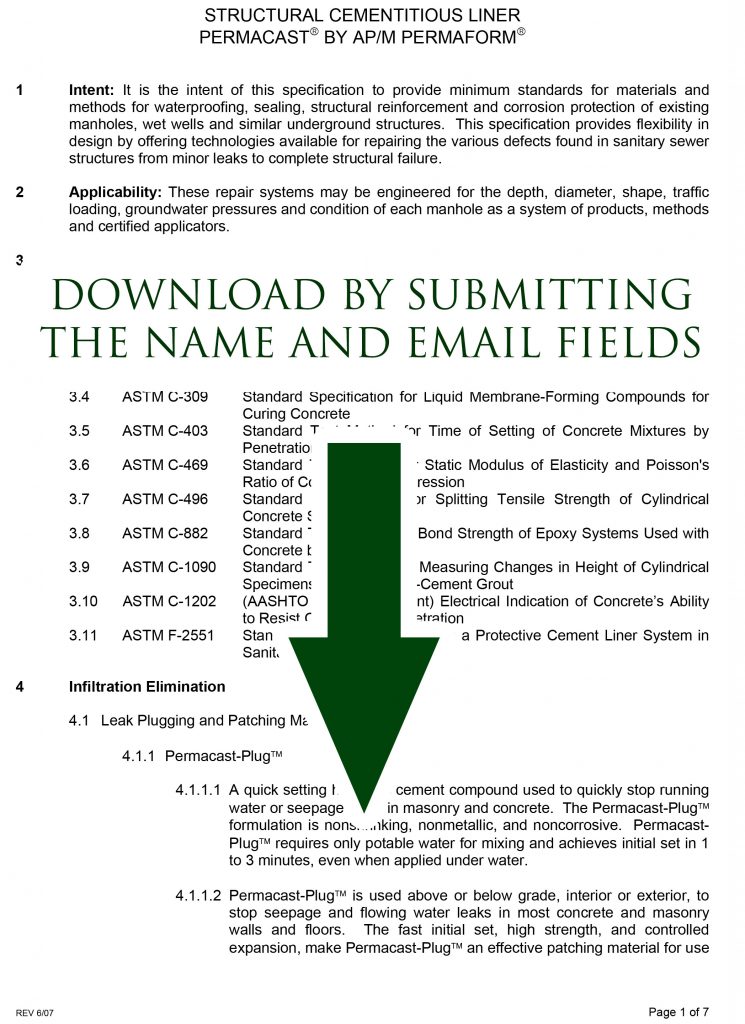Bacteria and fungi naturally form a biofilm above the waterline of wastewater flow. Among the microorganism that thrives in this biofilm is Thiobacillus Concretivorus, an aerobic (air-breathing) genus of Gram-negative betaproteobacteria that is the main contributor to microbial induced corrosion (MIC). Thiobacillus take H2S from the atmosphere and, through their digestion process, convert H2S into H2SO4 (sulfuric acid). It is the byproduct H2SO4 that reacts with calcium hydroxide within the cement, causing deterioration.
Traditional approaches include the top coating of cement with epoxy, polyurea, or PVC sheet liners that provide an excellent protective barrier but rely heavily upon preparation and expert installation. Another strategy is using alternative materials, which is a great alternative but can be too costly for some projects and communities. Finally, controlling the H2S gas is an effective solution but requires continual treatment and monitoring.
ConShield is a positively charged liquid polymer that molecularly bonds to each concrete particle protecting the entire concrete matrix when added during the mixing phase of concrete production. Since it is not a surface treatment, it cannot wash off, chip off or delaminate. Instead, when Thiobacillus bacteria come into contact with ConShield-treated concrete, they receive a bioelectric charge piercing their single-cell membrane. ConShield disrupts the biological chain; without the colonization of Thiobacillus, H2S is not converted to H2SO4.

